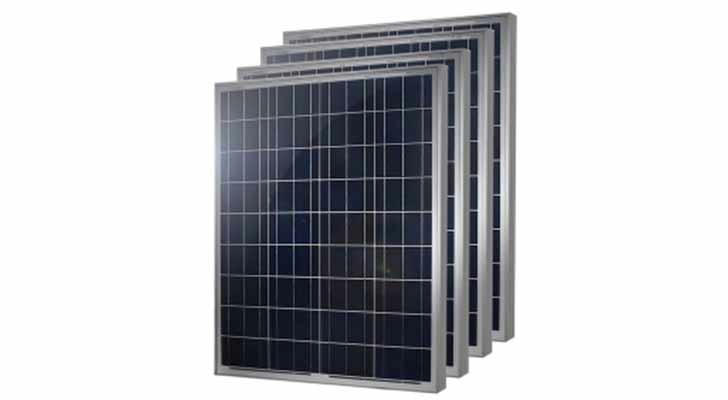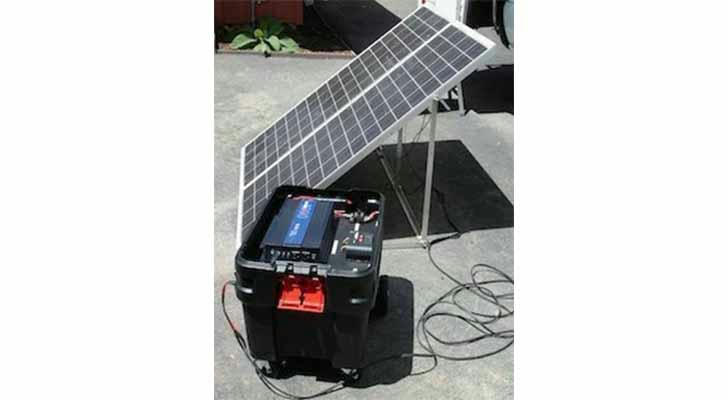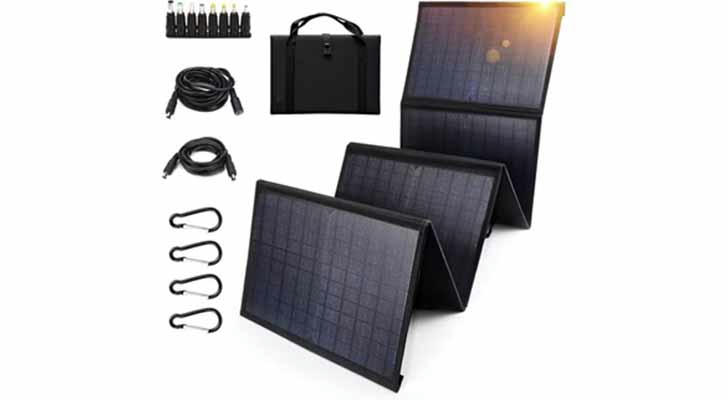Efficient Use of Solar Panels and Annual Electricity Savings

In today's pursuit of sustainable development and energy conservation, solar panels, as a clean and renewable energy solution, are increasingly becoming an important choice for households and businesses to reduce their carbon footprint. So, how can we efficiently use solar panels to maximize electricity savings, and how much electricity can we potentially save in a year? This article will delve into these questions in detail.
Efficient Use Strategies for Solar Panels.
Maximizing Sunlight Exposure: The efficiency of solar panels is directly affected by the intensity and duration of sunlight. Therefore, when installing solar panels, it's crucial to choose a location with no obstructions and direct sunlight, and to keep the panel surface clean, free from dust, bird droppings, and other obstructions to ensure maximum sunlight absorption.
Smart Grid Integration and Energy Storage: For grid-tied systems, solar panels generate electricity that can directly power households or businesses, with excess power sold back to the grid. Smart control systems optimize power distribution, ensuring maximum utilization of solar energy during sunny periods, reducing reliance on grid power. Additionally, integrating energy storage batteries allows for continued power supply during nights or cloudy days, further enhancing energy efficiency.
Rational Load Planning: Based on the solar panel's generating capacity and actual power demand, it's essential to plan loads rationally, avoiding the use of high-energy devices during peak hours, thereby reducing grid dependency and electricity costs. For instance, using appliances like washing machines and dryers during solar generation peaks can be beneficial.
Regular Maintenance and Inspection: Solar panels require regular maintenance and inspection to ensure their proper functioning and high-efficiency power generation. This includes checking for loose connections, cleaning the panel surface, and monitoring inverter performance. Prompt identification and resolution of issues can prevent power losses due to malfunctions.

Detailed Annual Electricity Savings Estimation.
The amount of electricity a solar panel can save in a year depends on various factors, including the panel's power rating, the installation site's sunlight conditions, and usage habits. Taking a 300-watt solar panel as an example, under average annual sunlight conditions, it can generate approximately 1.5 to 2.5 kilowatt-hours (kWh) of electricity per day, depending on local sunlight intensity and duration.
Assuming 250 days of effective solar power generation per year (accounting for rainy days, seasonal variations, etc.), this solar panel can generate approximately 375 to 625 kWh of electricity annually. For households, if this electricity replaces traditional grid power, the potential annual savings in electricity bills can be substantial, depending on local electricity rates.
Furthermore, with continuous advancements in solar technology and decreasing costs, solar panels' power generation efficiency and cost-effectiveness will continue to improve, resulting in even greater annual savings in electricity and electricity bills. Therefore, investing in solar panels not only aligns with environmental protection principles but also offers long-term economic benefits.
Certainly, here's a translation of your post into English:
Mr. Li's green energy transformation practice is undoubtedly a model worthy of emulation, embodying not only his profound understanding and practical actions towards environmental protection and energy conservation but also showcasing the immense potential of modern technology in promoting sustainable lifestyles. Let's delve deeper into Mr. Li's energy-saving practices and their achievements.
Wisdom Behind Installation Background and System Configuration.

Customized Installation: Based on local solar irradiation conditions and roof layout, Mr. Li carefully selected the power rating, quantity, and installation angle of the solar panels to ensure maximum energy capture.
Criticality of Energy Storage System: The lithium-ion battery storage system not only addresses the intermittency of solar power generation but also ensures continuous power supply during nights and cloudy days, further reducing electricity bills.
Smart Management System: The integration of an intelligent energy management system enables fine-grained control and optimized scheduling of household electricity consumption, enhancing energy efficiency and minimizing waste.
Remarkable Energy-Saving Measures and Outcomes.
Intelligent Electricity Management: Through smart dispatching, Mr. Li effectively balances power supply and demand, reducing peak-to-valley differences, alleviating grid stress, and lowering household electricity expenses.
Economic Benefits of Storage System: The storage system guarantees self-sufficiency in electricity while reducing the need for grid power, resulting in direct cost savings and achieving both economic and environmental benefits.
Promotion of Energy-Efficient Appliances: The choice of high-efficiency appliances such as LED lighting, inverter air conditioners, and energy-saving refrigerators not only reduces energy consumption but also enhances living comfort, embodying the concept of green consumption.
Annual Energy Savings and Environmental Contributions.
Substantial Energy Savings: According to estimates, Mr. Li's annual energy savings reach approximately 8,000 kWh, a significant figure that signifies greater self-sufficiency in energy consumption and contributes to reducing grid load and promoting energy structure transformation.
Notable Environmental Benefits: The reduction in CO2 emissions is approximately 6 tons, which is vital in mitigating global warming and improving air quality. Mr. Li's actions, though small individually, can collectively form a powerful force for environmental protection.
Outlook and Inspiration.
Mr. Li's energy-saving practices offer valuable lessons and inspiration. With technological advancements and continuous policy support, the application of renewable energy sources like solar will become more widespread and profound. Each of us can follow Mr. Li's example by adopting green energy sources, optimizing energy usage, and contributing to the sustainable development of our planet. Additionally, governments and all sectors of society should strengthen advocacy, guidance, and policy support to jointly promote the development and adoption of green energy.
